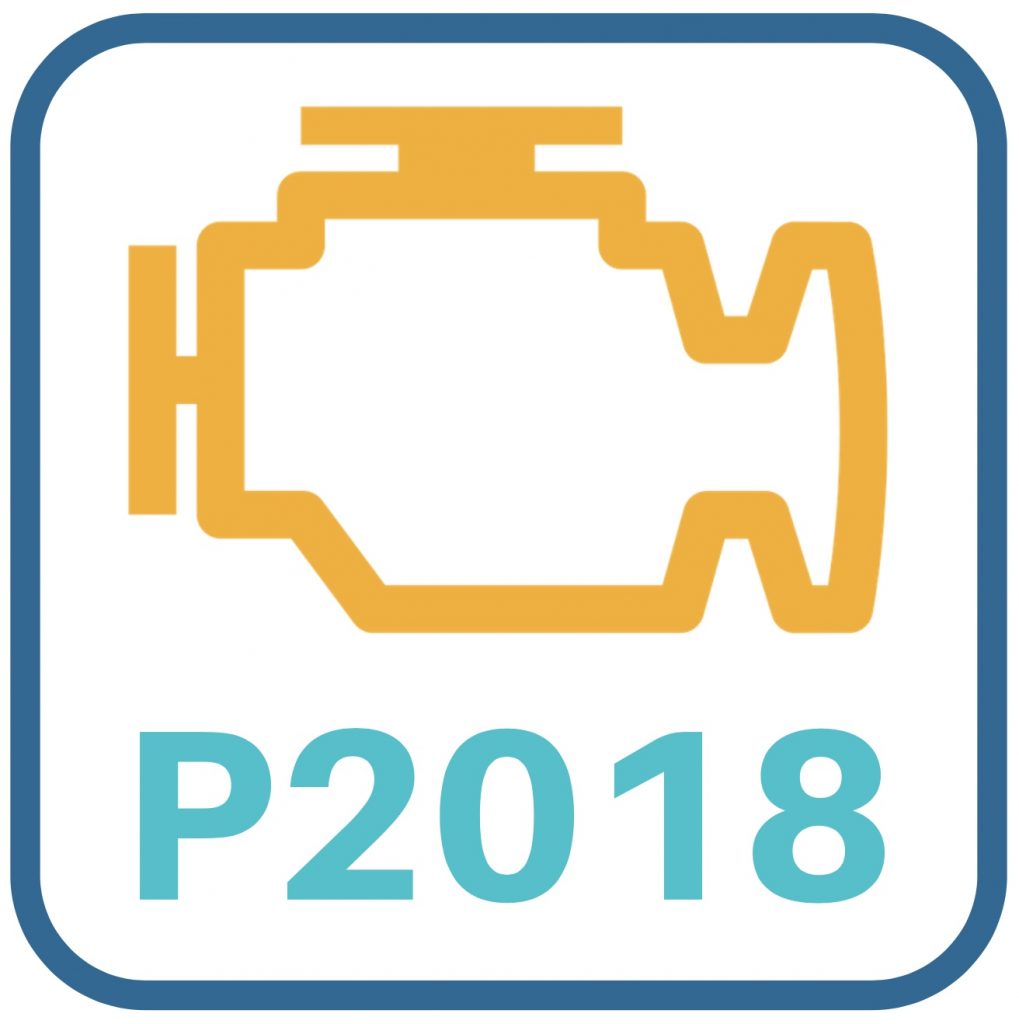P2018 is a generic diagnostic trouble code (DTC) that indicates an issue with the intake manifold runner position sensor/valve (we will be referring to the sensor by its common abbreviation of IMRC).
P2018 Definition: IMRC – Switch Circuit Intermittent (Bank 1)

IMRC
The IMRC’s job is to help the vehicle’s powertrain control module (PCM) allow air in and out of the intake manifold at different engine speeds. While every engine is different, the IMRC is usually located at the end or beginning of the intake manifold.
Switch Circuit Intermittent
An intermittent circuit means a high resistance connection, and it occurs when there is temporarily no electric connection or a weak electrical connection from one end of the wire to another (source).
Intermittent issues come and go, making diagnosing them a challenge since it can be difficult to re-create them in the garage.
Bank 1
Bank one is the part of the engine with the first cylinder. On in-line engines, there is only one bank. On V-6 and V-8 engines, there are two cylinder heads, and therefore two banks.
If your engine happens to be a V-6 or V-8, here is how to tell which side of the engine has bank one.
Symptoms
- Check engine light
- Poor MPG
- Misfiring
- Loss of horsepower
Causes + Diagnosis

P2018 is usually caused by a stuck or bad throttle plate/body, an IMRC valve that is either stuck or bad, or the IMRC sensor itself.
The below list of things likely to cause P2018 is listed from easiest to hardest to check.
1. Check for Other Codes
If any other diagnostic trouble codes accompanied P2018, make sure to address them first.
P2018 often accompanies other codes. Therefore, you can save yourself a lot of time and aggravation by referencing the causes of the other codes with this one, particularly if they are related to engine vacuum or the MAF sensor.
2. Vacuum Leak
A vacuum leak is one of the more common causes of P2018 if the code appears all by itself. Vacuum leaks allow unmetered air to enter the intake. As a result, unmetered air will lean out the air-fuel mixture.
You can check for a vacuum leak pretty easily. Spray a little carburetor cleaner around the intake manifold and see if the engine speed increases. If it does, you found the problem.
3. Inspect the IMRC Sensor Wiring
You’ll need to locate the IMRC sensor on your particular vehicle. It is usually pretty easy to access.
Once you find it, inspect the wiring harness around it. Make sure that it’s not frayed, burnt, or damaged. After you confirm the harness is ok, make sure that it’s connected tightly to the sensor.
Take a look at the terminals where the harness plugs into the IMRC sensor. Make sure that they are not corroded. If they do look dirty or corroded, go ahead and clean them with some electrical contact cleaner. You don’t want to use a cleaner that’s not made for the job. You’ll ruin the sensor.
If the pigtail looks bad, a new one only costs a couple of bucks and is easy enough to splice in.
Since P2018 is an intermittent trouble code (comes and goes), fixing the wiring harness often ends up being the fix.
Clean it up and clear the codes. If the code doesn’t come back, you’re done.
4. Check the IMRC Voltage
Now that we have established that the wiring going to the IMRC is good, we can test the voltage.
There are two ways to go about doing this. You can use a voltage meter, or you can use a scan tool. A scan tool is preferable since all you need to do is plug it into the OBD2 port and get the data. Check it against the factory specifications.
5. Check and Clean the IMRC Valve
One of the most common reasons that P2018 is triggered is a dirty IMRC valve. When the valve fills up with gunk, and the engine gets hot, the sludge gets hard, and the valve doesn’t open and close properly.
Conclusion
P2018 is relatively straightforward to diagnose. However, you’ll most likely encounter a wiring issue, a dirty IMRC valve, or a bad IMRC sensor. Good luck!
